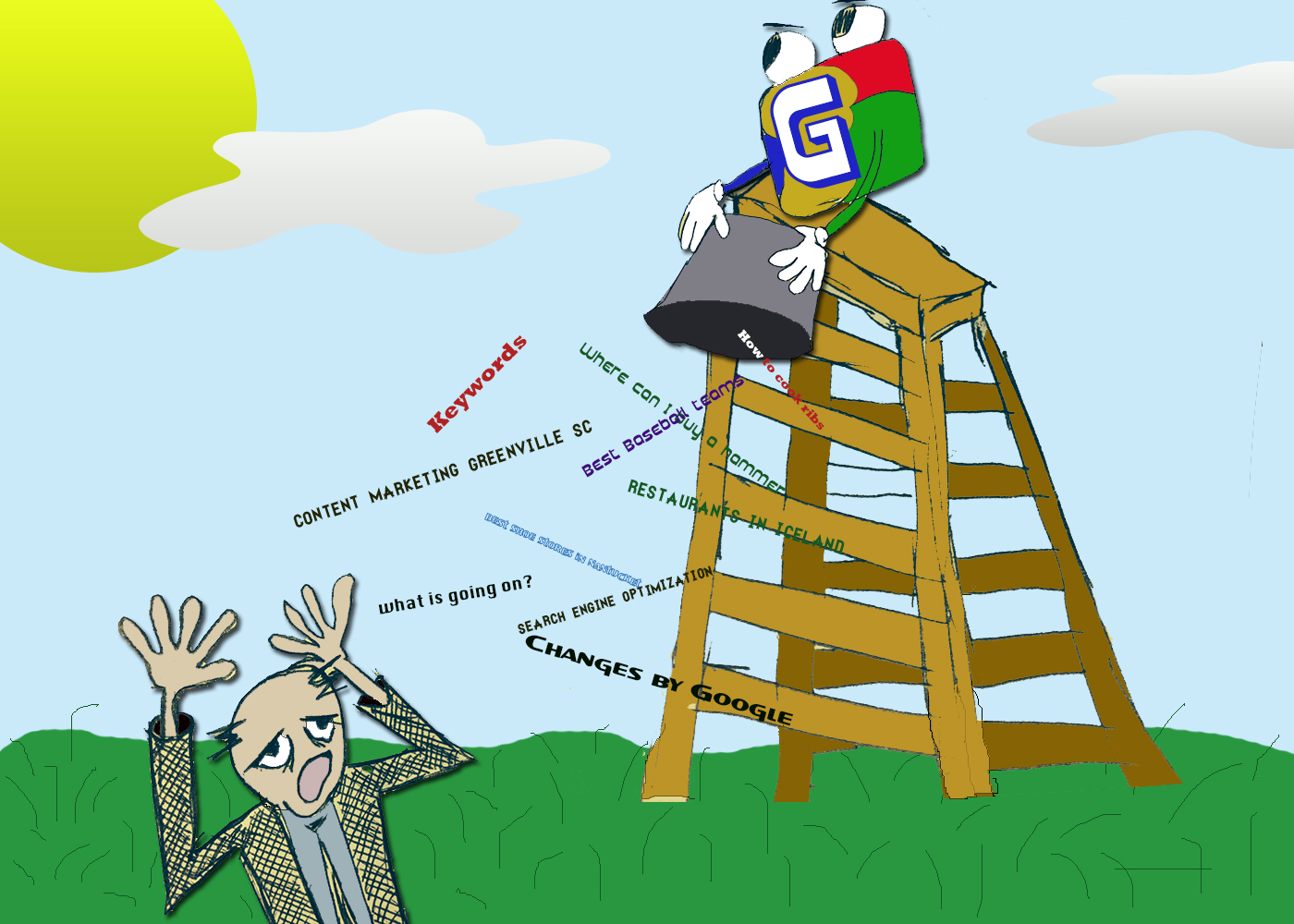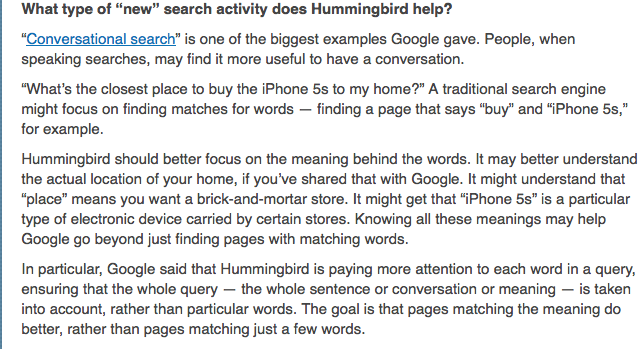Secure Search, Not Provided and Hummingbird
What a week for Google! First the buzz-killing, Post-Prism, Secure Search piece from Danny Sullivan seemed to catch a lot of folks with their panties ankle-bound. Then today, we’re seeing the news about a new algorithm, dubbed Hummingbird.
 Secure Search Rollout & Dark Google
Secure Search Rollout & Dark Google
Well, the world didn’t end, the sky didn’t fall and nobody died. This despite the fear mongering that lace the comments sections of articles like this one by Search Engine Journal’s Loren Baker. People were ticked off. The normally even-keeled folks at WordTracker seemed put out that Google is “taking away” our ability to measure ourselves.
But while so much info tends to focus on what has changed, here are three things that haven’t:
1 – Content Quality – The quest for websites that publish unique, engaging, original and useful content that is high quality? It’s ongoing, which is good since we were all doing so anyway. RIGHT?
2 – Importance of keywords – As long as search engines require us to enter some type of term in order to find information, nobody can convince me that keywords aren’t and won’t continue to be important.
3 – Tools help – Even in the (Not Provided) Age, you can get strong clues about whether or not your content creation efforts are successful. Helpful services like WordTracker and Google Webmaster still provide some keyword insight.
And let’s face it: Google Analytics never gave us 100% of the picture anyway—I don’t care what your former agency said.
A word about Hummingbird
BBC News and several other agencies published stories about Hummingbird around the same time.
Launched earlier this month, and formally introduced yesterday, Hummingbird represents the most significant algo development since Caffeine launched and changed the way the engine indexed info (and incorporated social content). But what does it do?

Actually, according to Inside Search, it’s supposed to take Knowledge Graph a step further by attempting to understand the meaning behind our search queries. This snippet from Danny Sullivan’s FAQ article explains it well:
Of course, especially with Hummingbird coming so close on the scandalous heels of Not Provided-gate, there are skeptics out there who are taking the “Skynet is becoming self-aware” stance.
I just wonder if Google originally had a cool animal name for the new algo—something like jackal, hyena or mongoose—and then changed it after all the panic and finger-pointing earlier this week!
Joey Hall – VP, Content Marketing



